Filter by
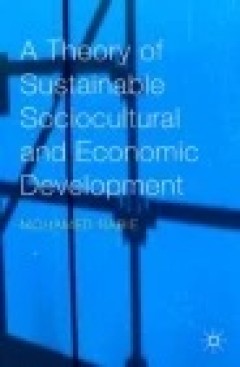
A Theory of Sustainable Sociocultural and Economic Development
Why do some countries' economies struggle to develop, even when they are the focus of so much research and international funding? While recognizing that the obstacles facing poor nations are many and complex, Rabie proposes that the roots of most obstacles are sociocultural; thus, sociocultural transformation and economic restructuring can only be successful when treated as interconnected, mutu…
- Edition
- Ed. 1
- ISBN/ISSN
- 978-1-137-57952-2
- Collation
- XI, 243
- Series Title
- -
- Call Number
- 339 RAB t

A Theory of Sustainable Sociocultural and Economic Development
Why do some countries' economies struggle to develop, even when they are the focus of so much research and international funding? While recognizing that the obstacles facing poor nations are many and complex, Rabie proposes that the roots of most obstacles are sociocultural; thus, sociocultural transformation and economic restructuring can only be successful when treated as interconnected, mutu…
- Edition
- Ed. 1
- ISBN/ISSN
- 978-1-137-57952-2
- Collation
- XI, 243
- Series Title
- -
- Call Number
- 339 RAB t
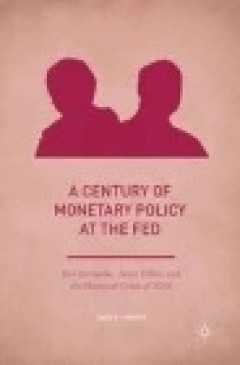
A Century of Monetary Policy at the Fed: Ben Bernanke, Janet Yellen, and the …
In this narrative history, David E. Lindsey gives the reader a ringside seat to a century of policies at the US Federal Reserve. Alternating between broad historical strokes and deep dives into the significance of monetary issues and developments, Lindsey offers a fascinating look into monetary policymaking from the Fed's inception in 1913 to today. Lindsey's three decades of service on the …
- Edition
- -
- ISBN/ISSN
- 978-1-137-57859-4
- Collation
- -
- Series Title
- -
- Call Number
- 339 LIN c
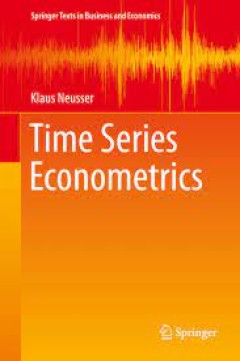
Time Series Econometrics
This text presents modern developments in time series analysis and focuses on their application to economic problems. The book first introduces the fundamental concept of a stationary time series and the basic properties of covariance, investigating the structure and estimation of autoregressive-moving average (ARMA) models and their relations to the covariance structure. The book then moves on…
- Edition
- -
- ISBN/ISSN
- 978-3-319-32862-1
- Collation
- 2 b/w illustrations, 64 illustrations in colour
- Series Title
- -
- Call Number
- -
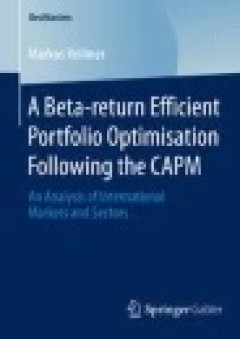
A Beta-return Efficient Portfolio Optimisation Following the CAPM: An Analysi…
Investors are trying to generate excess returns through active investment strategies. Since the outbreak of the financial crisis, investors face a situation where increased risks are accompanied by falling key interest rates. An optimal portfolio in terms of risk and return becomes a perpetual motion machine. Markus Vollmer answers the question how the seemingly impossible could still be achiev…
- Edition
- -
- ISBN/ISSN
- 978-3-658-06634-5
- Collation
- -
- Series Title
- BestMasters
- Call Number
- 658.155 VOL b

Energy and Finance Sustainability in the Energy Industry
This book analyses how socially responsible investments as well as the rising importance of Islamic finance are linked to the shift towards renewable energy. Academics and practitioners in the field take a global perspective and present case studies from several countries. The book is divided into three parts: The first part sheds new light on the energy shift towards renewable energy. The seco…
- Edition
- -
- ISBN/ISSN
- 978-3-319-32268-1
- Collation
- 6 b/w illustrations, 13 illustrations in colour
- Series Title
- -
- Call Number
- -
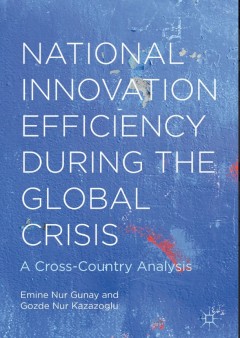
National Innovation Efficiency During the Global Crisis
What effect did the Great Recession have on innovation efficiency and the effectiveness of scarce resource management? Did countries with high GDPs and GDPs per capita sustain efficient innovation? How did the recession affect the time lag between innovation development and implementation? This book presents the most comprehensive data set in current economic literature to measure and compare t…
- Edition
- 1
- ISBN/ISSN
- 978-1-137-58254-6
- Collation
- XVII, 184
- Series Title
- -
- Call Number
- -

The Value of Social Media for Predicting Stock Returns Preconditions, Instru…
Michael Nofer examines whether and to what extent Social Media can be used to predict stock returns. Market-relevant information is available on various platforms on the Internet, which largely consist of user generated content. For instance, emotions can be extracted in order to identify the investors' risk appetite and in turn the willingness to invest in stocks. Discussion forums also provid…
- Edition
- -
- ISBN/ISSN
- 978-3-658-09508-6
- Collation
- -
- Series Title
- -
- Call Number
- -

The Use of Risk Budgets in Portfolio Optimization
Risk budgeting models set risk diversification as objective in portfolio allocation and are mainly promoted from the asset management industry. Albina Unger examines the portfolios based on different risk measures in several aspects from the academic perspective (Utility, Performance, Risk, Different Market Phases, Robustness, and Factor Exposures) to investigate the use of these models for ass…
- Edition
- -
- ISBN/ISSN
- 978-3-658-07259-9
- Collation
- -
- Series Title
- -
- Call Number
- -

Empirical Economic and Financial Research Theory, Methods and Practice
The purpose of this book is to establish a connection between the traditional field of empirical economic research and the emerging area of empirical financial research and to build a bridge between theoretical developments in these areas and their application in practice. Accordingly, it covers broad topics in the theory and application of both empirical economic and financial research, includ…
- Edition
- -
- ISBN/ISSN
- 978-3-319-03122-4
- Collation
- 45 b/w illustrations, 27 illustrations in colour
- Series Title
- -
- Call Number
- -
 Computer Science, Information & General Works
Computer Science, Information & General Works  Philosophy & Psychology
Philosophy & Psychology  Religion
Religion  Social Sciences
Social Sciences  Language
Language  Pure Science
Pure Science  Applied Sciences
Applied Sciences  Art & Recreation
Art & Recreation  Literature
Literature  History & Geography
History & Geography